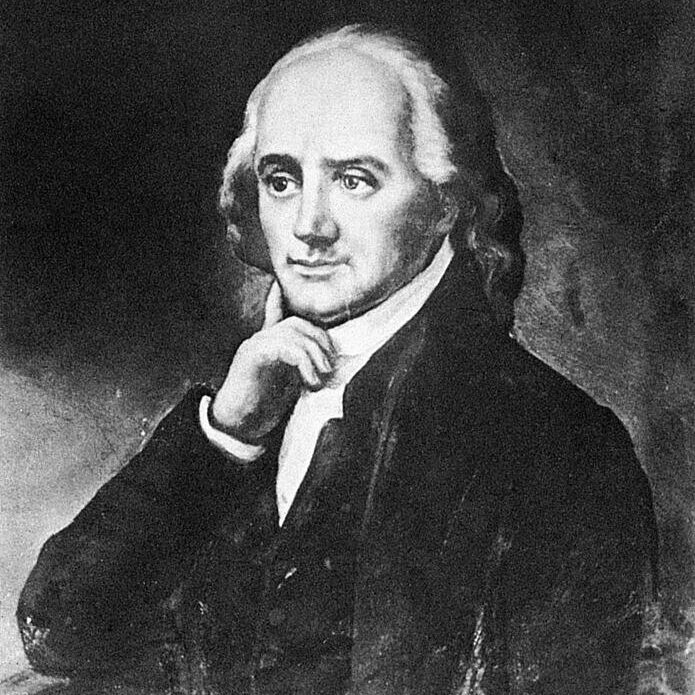
Francis Lightfoot Lee
Virginia
Francis Lightfoot Lee, a man of distinct character, was born on October 14, 1734. The fourth child of the influential Lee family of Westmoreland County, Virginia, grew up on his father’s expansive plantation and impressive house, Stratford Hall. As with his older brothers, he was educated by a Scottish minister. The minister’s sternness caused Mr. Lee’s brothers to tease him. The education provided by Rev. Craig molded him into a man whose wisdom and company many desired.
In 1750, while his brothers were away in England finishing their education, Francis and his siblings lost their parents, Thomas and Hannah Ludwell Lee. He was 16 at the time. Due to the parents’ death, the Lee children received much land, money, and company stock for land speculation in the Ohio River valley. Specifically, Francis inherited Coton, an estate in northern Virginia, in Fairfax County. In 1757, Fairfax County was divided and a portion of it was renamed Loudoun County. Hence, his brothers nicknamed him, Loudoun. He and his brother, Philip, were among the founders of the county’s seat, Leesburg.
In 1765, Francis Lee began his years-long service in the Virginia House of Burgesses representing Loudoun County while his brother, Richard Henry represented Westmoreland County. He was a close colleague of Patrick Henry and Thomas Jefferson. He joined Rep. Henry in opposing the Stamp Act. And the following year, he signed the seditious act, the Westmoreland Resolutions, which challenged King George III and his recent actions that undermined the constitutional rights of the colonists. As tensions increased over the next few years and the need for greater collaboration with other colonies increased, the Lee brothers joined Virginia’s Committee of Correspondence in 1773.
The next year, Mr. Lee was elected to be a delegate at the Second Continental Congress. While in Philadelphia, he boarded at his sister’s and her husband’s house.
In the pivotal summer of 1776, Francis Lightfoot Lee described the momentous events in this manner: “This day the resolve for independency was considered & agreed to in [Committee] of the whole……Tomorrow it will pass the house with the concurrence of S. Carolina……if our people keep up their spirits, & are determined to be free; whatever advantages the Enemy may gain over us This summer & fall; we shall be able to deprive them of in the winter, & put it out of their power ever to injure us again. Yet I confess I am uneasy, least any considerable losses on our side [should] occasion such a panic in the Country, as to induce a submission.”
During the war, Mr. Lee continued his service in the Congress. He was a civil servant who led in the background. Rarely did he enter a floor debate. He served on the military and marine committees. He also assisted in drafting the Articles of Confederation. He is one of the 16 men who signed both the country’s Declaration and its first constitution.
He retired from service to his country in 1779. His service to Old Dominion, however, was not complete. He was petitioned by his fellow Virginians to return state politics and help the state navigate its way through a time of unsettledness. He reluctantly obliged. In time, he returned to Menokin, his country estate near Richmond, and enjoyed the rest of his days exercising friendship and benevolence. He and his wife succumbed to pleurisy within days of each other. He passed away on January 11, 1797.
According to certain accounts, Francis Lightfoot Lee “embraced the religion of the gospel, and that under its supporting hope and consolation, he made his exit in peace from the world.” He lived to be 62 years of age.


